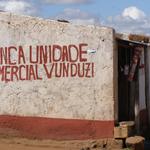Mozambique: A political economy analysis
In 2017, Mozambique was at its most critical moment since the end of the civil war, in a crisis-like cocktail of political, economic and social problems.
This report uses a political economy analysis to shed light on some of the paradoxes that characterize Mozambique by mid-2017: Entrenched poverty, the resuscitated armed conflict/war, the trust crisis between the Mozambican (Frelimo) government and its development partners, the spiralling debt and the party-state. They are paradoxes, since just a few years ago Mozambique received praise as frontrunner to overcome those problems.
Mozambique defaulted on its foreign debt in 2016. Western donor countries demanded an international forensic audit of the ‘secret’ borrowing of US$ 2 billion, which destination and beneficiaries remain unclear, yet rendering the state indebted. The ‘secret’ loans explain a smaller part of the new debt, while heavy international and domestic borrowing and public spending after the discovery of large new mineral resources drove up the debt levels.
The economy unhinged not by a full-blown resource curse, but rather by the mere prospect of large future income from the offshore LNG gas and coal, a phenomenon dubbed the “presource curse”. The discovery of large natural resources enhanced the already existing tendencies of the political-economic elite towards unproductive rent-seeking behaviour, and it further weakened the Frelimo-state's institutions.



